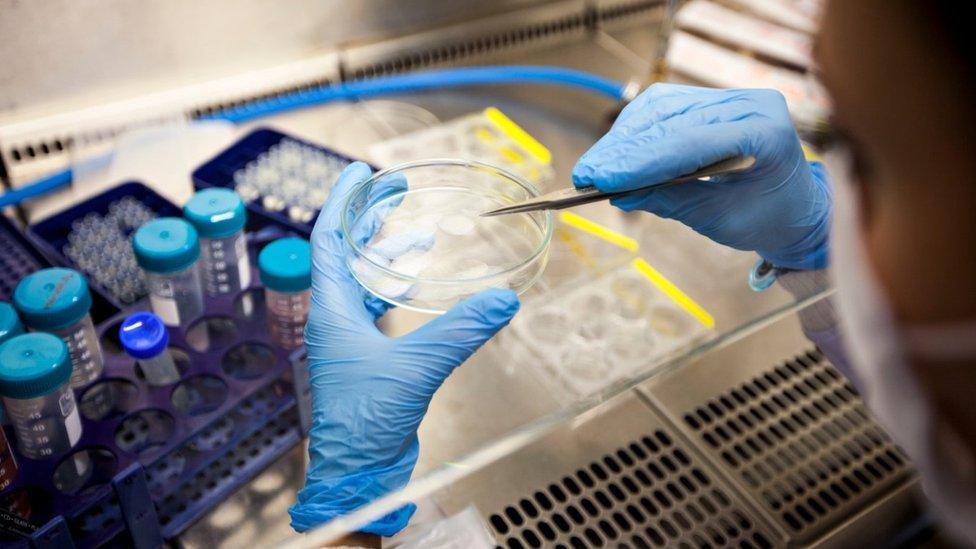Human genetics work at Edinburgh University gets £53m boost
- Published

Studies on genetic links to health and disease have received a £53m boost from the Medical Research Council (MRC).
The funds will support work at the MRC Human Genetics Unit at the University of Edinburgh for the next five years.
Scientists are using the latest technologies to study how genes work and to uncover the genetic basis of both rare and common diseases.
Experts are examining the entire genetic make-up of patients and their families.
They aim to discover how variations in people's DNA code can lead to diseases, including those that affect childhood development.
Researchers are also investigating how genes are switched on and off to reveal how these processes contribute to diseases such as cancer and brain and eye disorders.
'World-leading research'
Prof Wendy Bickmore, director of the MRC Human Genetics Unit, said: "The scale and long-term nature of this funding from the Medical Research Council will enable our scientists to tackle the most challenging questions in human genetics.
"We are using the latest computational and experimental techniques to investigate how our genomes work to control the function of cells and tissues in people and populations.
"We will also be able to train the next generation of scientists to apply their expertise to improving health and the lives of patients and their families."
The MRC Human Genetics Unit was first established more than 60 years ago as the Clinical Effects of Radiation Unit.
It was renamed in 1988 and joined the University of Edinburgh in 2012.
The MRC Human Genetics Unit is a major partner in the MRC Institute of Genetics and Molecule Medicine at the university.
Dr Lindsay Wilson, MRC programme manager for genetics and genomics, said: "The Human Genetics Unit is the MRC's biggest unit investment and we're pleased to continue to support director Wendy Bickmore's vision for world-leading research across the next five years and look forward to many exciting discoveries."